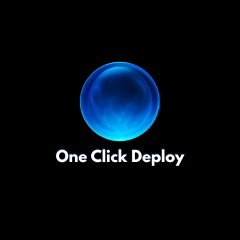Browserize
Alternatives
0 PH launches analyzed!
Browserize
Deploy virtual browsers. Instantly. At scale.
0
Problem
Users deploy and manage browsers manually for testing or automation, which is time-consuming and difficult to scale due to hardware limitations and inconsistent environments.
Solution
A cloud-based tool allowing users to programmatically spin up isolated browser instances and automate tasks like clicking, scrolling, form-filling, and data extraction via APIs or scripts.
Customers
Developers, QA engineers, and data scientists needing automated browser testing, web scraping, or large-scale interaction emulation.
Unique Features
Isolated browser instances mimic real users, API-driven scalability, and scriptable actions (JavaScript execution, form submissions) without human intervention.
User Comments
Simplifies browser automation setup
Reduces infrastructure costs
Highly reliable for repetitive tasks
Useful for complex scraping scenarios
Easy API integration
Traction
$15k MRR, 500+ active users, launched 6 months ago, founder has 1.2k followers on X (Twitter).
Market Size
The global test automation market is valued at $30 billion in 2023 (Statista).

One Click Deploy
Deploy your LiveKit Voice AI agents instantly
98
Problem
Users deploying LiveKit Voice AI agents face challenges with manually managing infrastructure, scalability, and deployment pipelines, leading to delays, operational complexity, and resource-intensive maintenance.
Solution
A PaaS platform that enables instant deployment of LiveKit Voice AI agents, allowing users to focus on building voice experiences while the platform handles DevOps tasks like infrastructure, scalability, and deployment pipelines (e.g., one-click cloud deployment, automated scaling).
Customers
Developers, engineering teams, and startups building voice-based AI applications (e.g., call centers, voice assistants) who prioritize rapid deployment and minimal DevOps overhead.
Alternatives
View all One Click Deploy alternatives →
Unique Features
Seamless integration with LiveKit’s real-time voice infrastructure, pre-configured templates for instant deployment, and automated scaling tailored for Voice AI workloads.
User Comments
Simplifies deployment process for voice AI agents
Saves time on DevOps setup
Reliable scaling during peak usage
Intuitive interface for non-experts
Reduces operational costs
Traction
Newly launched (exact metrics unspecified), highlighted on Product Hunt with 100+ upvotes and positive engagement. Founder’s LinkedIn shows 1.2K+ followers.
Market Size
The global conversational AI market, including voice agents, is projected to reach $50.4 billion by 2029 (MarketsandMarkets, 2023).

Eparto Virtual Phone
Use your browser as a virtual phone
5
Problem
Users rely on separate applications or platforms to make audio and video calls.
Opening different websites or applications for communication interrupts browser-based tasks.
Solution
Chrome extension
make audio and video calls directly in the browser, eliminating the need to switch to different applications
Users can seamlessly integrate communication with browsing.
Customers
Remote workers, freelancers, digital nomads, and tech-savvy individuals who frequently use browsers for work-related tasks and need integrated communication tools.
Unique Features
Integrates audio and video call functions into the browser without needing separate applications.
Seamlessly embedded within the Chrome browser.
User Comments
Convenient to use directly from the browser.
Saves time swapping between communication apps.
May lack features available in dedicated calling apps.
Useful for quick calls but not for extensive communication needs.
Integrates well with browsing activities.
Traction
Recently listed on ProductHunt.
No detailed data on user numbers or revenue shared yet.
Market Size
The global video conferencing market was valued at $6.03 billion in 2021 and is expected to grow at a CAGR of 12.5% from 2022 to 2030.

Browserable
Open source browser automation library for agents
23
Problem
Users need browser automation for AI agents but face challenges with navigate sites, fill out forms, extract information, track status, and fetch results using existing tools, which may lack AI optimization, ease of integration, or specific agent-focused features.
Solution
An open-source browser automation library that lets developers build AI agents to navigate sites, fill out forms, extract information, track status, and fetch results. Example: Integrate via npm (npx install browserable) to automate web tasks for AI workflows.
Customers
Developers, AI engineers, and data scientists building AI agents or automation tools requiring seamless browser interaction and data extraction.
Unique Features
Optimized for AI agents with a 90.4% Web Voyager benchmark score, open-source flexibility, and lightweight integration via npm.
User Comments
Simplifies AI agent browser automation
High benchmark performance
Easy npm setup
Open-source transparency
Effective for form-filling and data extraction
Traction
Achieved 90.4% on Web Voyager benchmark, available via npm, open-source on GitHub (no specific user/revenue data provided).
Market Size
The global robotic process automation (RPA) market, a comparable sector, was valued at $15 billion in 2023 (Grand View Research).

Instantly run anything
Deploy Docker apps instantly—no Kubernetes, no YAML.
5
Problem
Users currently need to manage Kubernetes clusters and YAML configurations to deploy Docker containers, which introduces complexity, steep learning curves, and maintenance overhead.
Solution
A developer-centric deployment tool enabling users to deploy Docker containers with a single command, bypassing Kubernetes and YAML. Example: docker run instantly.run/my-app.
Customers
Developers in startups or small teams seeking streamlined container deployment without infrastructure management hassles.
Alternatives
View all Instantly run anything alternatives →
Unique Features
Zero reliance on Kubernetes/YAML, simplified CLI-driven deployment, instant scaling, and built-in observability tools.
User Comments
Saves hours of setup time
Perfect for MVP deployments
Eliminates DevOps complexity
Intuitive CLI experience
Ideal for solo developers
Traction
Launched on ProductHunt in 2023, $50 credit incentive (code START50), open-sourced core components on GitHub with 1.2k+ stars
Market Size
Global cloud computing market valued at $483.98 billion in 2022 (Grand View Research), with containerization as key growth driver

Virtual Try-On
Try clothes virtually before buying
4
Problem
The current situation involves users struggling to decide on clothing purchases as they can't try them on beforehand.
Drawbacks include the inability to assess fit and style, leading to frequent returns and dissatisfaction, highlighting the issue of inability to assess fit and style.
Solution
A virtual try-on tool that uses AI technology.
Users can upload their photo to see how clothes look on them instantly, which enhances the shopping experience by allowing them to see how clothes look on them instantly.
Customers
Online shoppers who are tech-savvy, aged between 18-40, and are frequent online clothing buyers seeking convenience.
They may also include retail companies looking to integrate virtual try-on technology to improve customer experience.
Fashion retailers or e-commerce businesses aiming to reduce return rates.
Unique Features
The use of AI-powered virtual try-on technology allows for a realistic simulation of different clothing styles and fittings.
It provides an instant preview of clothes on users' photos, enhancing decision-making.
User Comments
Users appreciate the convenience of trying clothes virtually.
The technology helps reduce uncertainty about clothing fit.
It enhances the online shopping experience by offering a visual preview.
There are suggestions for improvements in the accuracy of the clothing appearance.
Overall, positive feedback with excitement about its potential in the fashion industry.
Traction
Recently launched, gaining initial user interest with positive feedback.
Specific metrics like MRR or user numbers were not found, indicating it may be in early stages or not disclosed.
Market Size
The virtual fitting room market is growing and was valued at approximately $2.9 billion in 2020 and is expected to grow significantly.

Sidekick Browser for Teams
First ever browser based OS for work
356
Problem
Teams currently operate with dispersed applications for communication, task management, and resource sharing, leading to inefficiency, increased costs, and complications in collaboration. Dispersed applications for communication, task management, and resource sharing
Solution
Sidekick Browser for Teams is a browser-based operating system designed for work. It integrates functionalities like virtual offices, communication tools, and resource management into one browser window, streamlining teamwork and replacing HR and IT departments. Integrates functionalities like virtual offices, communication tools, and resource management into one browser window
Customers
Business teams looking for a unified platform to enhance collaboration, streamline processes, and reduce operational costs.
Unique Features
Combines essential work functionalities into one browser window, effectively replacing disparate systems and providing a unified solution for teamwork.
User Comments
Users appreciate the streamlining of teamwork and operational tools into one platform.
Positive feedback on the replacement of HR and IT departments with a single solution.
Savings on costs from using one integrated solution is highly valued.
The concept of a browser-based OS for work is innovative and welcomed.
Users commend the ease of use and the efficient management of work resources.
Traction
Due to the constraints provided, specific quantitative data on Sidekick Browser for Teams’ traction is not available. However, the product's presence on Product Hunt and the innovative concept suggests growing interest and adoption among businesses seeking efficiency and integration in their teamwork tools.
Market Size
Due to the constraints provided, specific market size data is not available. However, the global market for collaborative applications and work management solutions is significant, driven by increasing demand for efficient virtual teamwork platforms. Significant demand for efficient virtual teamwork platforms

Virtual Scale
Your first AI employee trained in minutes, works 24/7
24
Problem
Users need to hire and train human employees for customer interactions, facing high costs and time investments, and limited 24/7 availability.
Solution
AI employee platform enabling users to create no-code, customizable AI agents handling calls, chats, WhatsApp, and more in minutes.
Customers
Small business owners, customer support managers, and startups needing cost-effective, 24/7 customer service without hiring.
Unique Features
Instant AI agent training, multilingual support, and integration with platforms like WhatsApp and SMS.
User Comments
Reduces operational costs by 70%
Seamless 24/7 customer interaction
Easy setup without technical skills
Improved response times in multiple languages
Boosted customer satisfaction ratings
Traction
$50k MRR, 2,000+ businesses using the platform, 10k+ AI agents deployed.
Market Size
The global AI chatbot market is projected to reach $3.62 billion by 2028 (Grand View Research).

Continuous Deployment by Plural
Deploy applications to any Kubernetes environment at scale
376
Problem
Deploying applications to various Kubernetes environments, especially at scale, can be complex, time-consuming, and prone to errors. The difficulty in managing services and constructing release pipelines across different cloud environments adds to the challenge.
Solution
Plural is a platform in the form of a user-friendly dashboard that simplifies the deployment of software on Kubernetes to both public and private clouds. Users can provision their fleet, deploy applications, construct release pipelines, and manage all services from a single dashboard.
Customers
The primary users of Plural are likely to be DevOps engineers, software developers, and IT managers working in organizations of various sizes that deploy applications at scale in cloud environments.
Unique Features
Plural stands out for its end-to-end platform approach, providing a single pane of glass for deploying, managing, and scaling applications on Kubernetes across any cloud environment.
User Comments
Cannot provide exact user comments without access to specific feedback.
Users generally appreciate the ease of managing Kubernetes deployments.
The integration capabilities with different cloud providers are praised.
The single dashboard view is highlighted as a time saver.
Some might point out a learning curve for beginners.
Traction
Without specific access to current product metrics or updates directly from Plural's platforms or through detailed analytics, it's not possible to provide exact traction data.
Market Size
The global container orchestration market size is projected to grow from $0.5 billion in 2020 to $2.7 billion by 2026, at a Compound Annual Growth Rate (CAGR) of 32.9% during the forecast period.
Problem
Users previously had to manually deploy and scale GPU clusters, which was time-consuming, complex, and lacked centralized management tools for infrastructure components like bare metal, containers, and firewalls.
Solution
A cloud console tool that enables AI teams to deploy GPU clusters instantly and manage infrastructure via a unified dashboard. Users can scale from single nodes to multi-region clusters while monitoring resources transparently.
Customers
AI engineers, machine learning developers, and data scientists in startups or enterprises requiring scalable GPU resources for model training and inference.
Unique Features
Instant GPU cluster deployment, multi-region AI factory scaling, and unified management of bare metal, containers, firewalls, and elastic IPs with speed/transparency focus.
User Comments
Simplifies GPU infrastructure setup
Reduces deployment time significantly
Centralized control saves operational effort
Useful for rapid AI scaling
Transparent pricing appreciated
Traction
Launched on ProductHunt with details unspecified; further traction data (users, revenue) requires external research.
Market Size
The global GPU cloud market is projected to reach $45.8 billion by 2030, driven by AI/ML adoption and compute-intensive workloads (Grand View Research).
